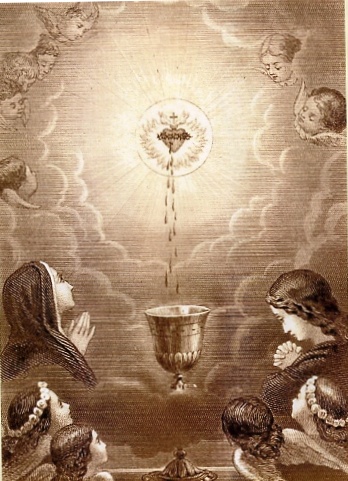
Thursday, July 9, 2020 –
Okie dokie, so yesterday we started talking about Holy Days of Obligation, and it got a little nutty right out of the gate because the USCCB list doesn’t quite line up with the Canon Law list. I mean, it does, but what gives with the “missing dates” for us!?
So here is the Canon Law regarding Holy Days:
Can. 1246 §1. Sunday, on which by apostolic tradition the paschal mystery is celebrated, must be observed in the universal Church as the primordial holy day of obligation. The following days must also be observed: the Nativity of our Lord Jesus Christ, the Epiphany, the Ascension, the Body and Blood of Christ, Holy Mary the Mother of God, her Immaculate Conception, her Assumption, Saint Joseph, Saint Peter and Saint Paul the Apostles, and All Saints.
§2. With the prior approval of the Apostolic See, however, the conference of bishops can suppress some of the holy days of obligation or transfer them to a Sunday.Can. 1247 On Sundays and other holy days of obligation, the faithful are obliged to participate in the Mass.
Moreover, they are to abstain from those works and affairs which hinder the worship to be rendered to God, the joy proper to the Lord’s day, or the suitable relaxation of mind and body.
In Canon 1246 §1 we get that complete list of Sundays + the 10 Holy Days. And, in Canon 1247 we see the obligation part: go to Mass and abstain from work. That leaves us with one itsy-bitsy clause: Canon 1246 §2:
“With the prior approval of the Apostolic See, however, the conference of bishops can suppress some of the holy days of obligation or transfer them to a Sunday.”
Ahh! THERE it is!
I will go into a brief history of Holy Days in a future post, but for now here is the super-duper brief history surrounding Holy Days in the United States.
Picture it: America, December 13, 1991. The members of the National Conference of Catholic Bishops of the United States of America are sitting around the table (Note: some historical liberty here…I don’t actually know if a table was involved). Someone makes a motion, a second is made, and thus is born general decree concerning holy days of obligation for Latin Rite Catholics:
In addition to Sunday, the days to be observed as holy days of obligation in the Latin Rite dioceses of the United States of America, in conformity with canon 1246, are as follows:
— January 1, the solemnity of Mary, Mother of God
— Thursday of the Sixth Week of Easter, the solemnity of the Ascension
— August 15, the solemnity of the Assumption of the Blessed Virgin Mary
— November 1, the solemnity of All Saints
— December 8, the solemnity of the Immaculate Conception
— December 25, the solemnity of the Nativity of Our Lord Jesus ChristWhenever January 1, the solemnity of Mary, Mother of God, or August 15, the solemnity of the Assumption, or November 1, the solemnity of All Saints, falls on a Saturday or on a Monday, the precept to attend Mass is abrogated.
This decree of the Conference of Bishops was approved and confirmed by the Apostolic See by a decree of the Congregation for Bishops (Prot. N. 296/84), signed by Bernardin Cardinal Gantin, Prefect of the Congregation, and dated July 4, 1992.
As President of the National Conference of Catholic Bishops, I hereby declare that the effective date of this decree for all the Latin Rite dioceses of the United States of America will be January 1, 1993, the solemnity of Mary, Mother of God.
Given at the offices of the National Conference of Catholic Bishops in Washington, DC, November 17, 1992.
Most Reverend Daniel E. Pilarczyk
Archbishop of Cincinnati
President, NCCBMonsignor Robert N. Lynch
General Secretary
There is a little more to it, and the whole “some Dioceses transfer the Ascension to the following Sunday thing,” but that is the basics. After the current code of Canon Law was promulgated (decreed, circulated) in 1983, each Bishop’s conference was allowed, with permission from the Apostolic See, to transfer or suppress some Holy Days. One can make the argument that this might not be the wisest of things to do, but the Bishops have yet to ask me my opinion on anything!
So, as you see above, Prot. N. 296/84 was signed by Bernardin Cardinal Gantin, Prefect of the Congregation, on July 4, 1992. I have yet to find that specific document because…well… a Church that pre-dates the internet by roughly 2,000 years tends to not have everything online or organized in a searchable fashion. So, things get referenced, but it isn’t always easy to track down the specific document. #LeSigh!
Anyhoo, that is the shortened version for the differences between the Canon Law list and the United States lists. Next up…more history! Woot! Woot!
Blood of Christ, without which there is no forgiveness of sin, save us!
